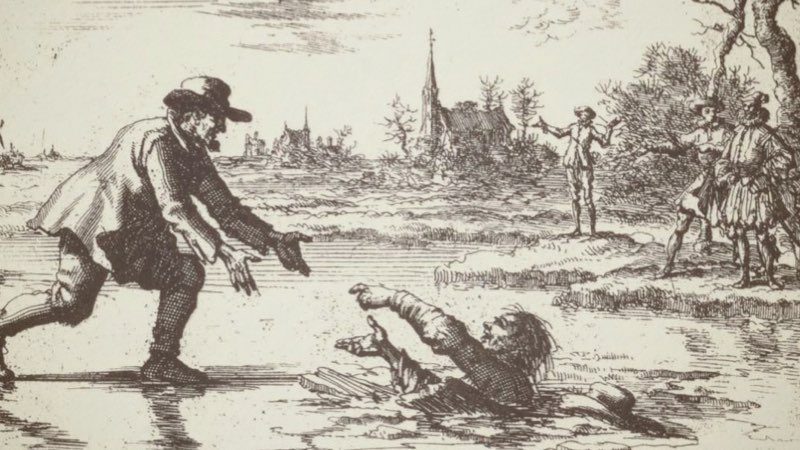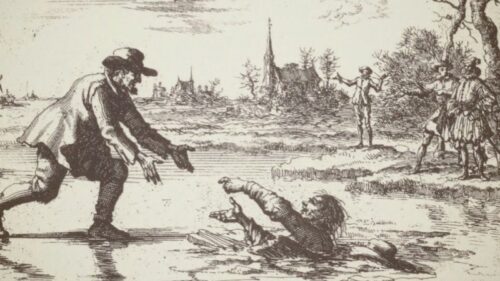-
56. Ignatius
Ignatius, a student under John, devoured by wild animals in Rome, A.D. 111 Ignatius, A Disciple Of The Apostle John, Devoured By Wild Beasts In A Circus At Rome, For The Testimony Of The Son Of God, A.D. 111 Ignatius, a disciple of the apostle John, and a successor of Peter and Evodius, was in the service of the church of Christ at Antioch in Syria. He was a very God-fearing man, and faithful and diligent in his ministrations. He was surnamed Theophorus, that is, The Bearer of God, apparently because he often bore the name of God and his Saviour in his mouth, and led a godly life. He was wont to say frequently: "The life of man is a continual death, unless it…
-
55. Ethiopian Eunuch
The Ethiopian Or Eunuch Of Queen Candace, Who Was Baptised By Philip, Put To Death For The Name Of Christ, In The Island Of Caprobano, A.D. 110 Immediately after Rufus and Zosimus, A. Mellinus introduces the Ethiopian or eunuch of Queen Candace in Ethiopia, who was converted by Philip to the faith in Jesus Christ, and thereupon baptized, as we read in the Acts of the Apostles. It is stated of him, from Jerome, that he preached the Gospel of our Lord in Arabia Felia, and also in a certain island of the Red Sea, called Caprobano (some call it Ceylon), where, it is supposed, he suffered death for the testimony of the truth. See above, Mellin. ex Hieron. Catal. in Crescente, in 53, cap.…
-
54. Rufus and Zosimus
Rufus And Zosimus, Two Pious Christians, Beheaded At Philippi In Macedonia, For The Faith In Jesus Christ, A.D. 109 Rufus and Zosimus were disciples of Christ and His apostles, and had also been instrumental in founding and building up the church of God among the Jews and the Gentiles. Especially conspicuous is Rufus, from the greetings of the apostle Paul to the church at Rome, in which he includes Rufus, not merely as a common member of the same, but as a distinguished, yea chosen person, for he says: "Salute Rufus chosen in the Lord, and his mother and mine" (Rom. 16:13). This Rufus and the aforementioned Zosimus, both pious and upright Christians, together with many of their fellow believers, were put to death for…
-
53. Simon Cleophas
Simon Cleophas, One Of The Seventy Disciples Of Christ, Crucified By Atticus, Under Trajan, A.D. 109 Simon Cleophas was the son of Cleophas and Mary, and a cousin of our Lord Jesus, because he was the son of the brother of Joseph, the supposed father of Christ. After the death of the apostle James he was chosen, by common consent, bishop of the church at Jerusalem; hence he must be distinguished from Simon surnamed Zelotes, who was one of the apostles, and was crucified in Persia. For, the latter was a son of Alpheus, but the former a son of Cleophas, not one of the twelve, but of the seventy disciples of Christ, as Eusebius admits, saying: "If any one should say that this Simon…
-
52. Summary of Martyrs in the Second Century
An Account Of Those Who Suffered In The Second Century A Summary of the Martyrs of the Second Century [The two Roman, or, properly speaking, Greek Emperors, Trajan and Marcus Aurelius raised the principal persecutions against the Christians, in this century. This is amply shown in the following account, as well as what persons suffered for the name of Christ in these persecutions. In the persecutions through Trajan there were slain, after enduring much suffering, Simon Cleophas, who was a hundred and twenty years old, Rufus and Zosimus, the Ethiopian baptized by Philip, Ignatius, Onesimus, Dionysius Areopagita, Publius, Barsimeus, Barbelius and his sister Barba, Justus and Pastor, Phocas, Faustina, Jacobita, Felicitas with her seven sons, and Lucius. Under Marcus Aurelius there suffered, Justinus, Polycarpus, and…
-
51. Summary of Baptism in the Second Century
An Account Of The Baptism Of The Holy Martyrs In The Second Century Summary Of Baptism In The Second Century The witnesses as regards the ordinance of the baptism of Jesus Christ, who have written in this century, are few, and their accounts are brief, but mostly clear and conclusive. First appears one Dionysius, surnamed Alexandrinus, who writes to his friend Sixtus about a certain brother, who considered the baptism of the heretics no baptism at all, and, therefore requested to be rebaptized. He is followed by Justinus, who, in his letters written in defense of the Christians, as well as in his disputation with Tryphon, the Jew, speaking of baptism, treats of it throughout as of the baptism of Christ, which was administered to…


